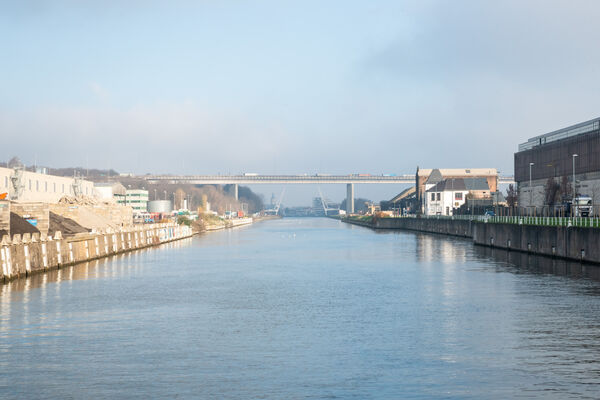- Home
- Urban projects
Urban projects
The territory of the Brussels-Capital Region is constantly developing. Learn more about our urban projects (French or Dutch)
- Urban issues
Urban issues
Housing, facilities, economy, land... perspective.brussels collects and analyses the data essential to the development strategy of the Region. Learn more about these urban issues (French or Dutch)
- Statistics and analyses
- Planning tools
- Who are we?
Socio-economic, territorial and environmental diagnosis of the Brussels-Capital Region following the COVID-19 pandemic
3rd edition
Publication
Posted on 16 May 2022

© perspective.brussels/C²
The socio-economic, territorial and environmental diagnosis of the Brussels-Capital Region following the COVID-19 pandemic is in its 3rd edition. This updated version analyses the repercussions of the health crisis on the life of Brussels residents in terms of demographic, economic, social and health aspects as well as the impact on the regional territory.
The document is designed to support the political authorities' reflection about the actions to be taken.
Main observations identified
In 2020, Brussels' population growth was historically low. This phenomenon was due to a clearly excessive mortality rate (excess mortality was 20% in 2020 and zero in 2021) and fewer international migrations than in 2019. In 2021 and subsequent years, new demographic projections are based on a return to normal (pre-pandemic) levels and continued demographic growth.
In 2020, the health crisis led to a drop in economic activity in Brussels of 5.2%, a figure similar to other regions of the country. The latest projections forecast a sharp recovery in economic activity in the three regions, although slower in Brussels. However, this overall recovery masks significant disparities at the sectoral level.
Support measures limited job losses in the Brussels region, but the health crisis put an end to the fall in the number of job seekers observed for 5 consecutive years from 2015 to 2019. The number of social security integration applications experienced unprecedented growth of 14% between January 2020 and April 2021.
Furthermore, the volume of work fell sharply in 2020. The volume of paid employment recovered in 2021 but in the third quarter was still below its level before the health crisis.
In terms of housing, production was exceptionally low in 2020. There is therefore still an acute housing crisis: half of the Brussels population at risk of poverty lives in housing that is considered too small for their household size. Half of the tenants in Brussels have access to less than 20% of the rental market.
The impact of the health crisis on office spaces is not yet fully visible and measurable. While remote working will inevitably become more widespread, the redeployment of office space must also be taken into account, especially since the spread of remote working also improves the economic attractiveness of urban areas. Office vacancies are rising slightly, but no major upheaval has been observed at this stage.
In relation to facilities, the development of schools in particular was highlighted during the crisis. It also emphasised the lack of quality workspaces for too many students. The average learning loss is estimated to be half a school year, and educational inequality has increased.
Regarding mobility, the health crisis accelerated a trend towards more flexible travel. Active modes of transport (walking, cycling) have grown significantly. The health crisis also highlighted the unbalanced allocation of public space to car use.
The lockdown periods resulted in a marked increase in the use of green spaces which were therefore put under pressure. The health crisis also brought the Region's areas of deficiency into sharper focus.
From an environmental perspective, the reduction in road traffic intensity resulted in an exceptional improvement in air quality in 2020.
Territorial changes to be supported and accelerated
The contagion of the virus, the restriction measures and the lasting impacts on behaviours have shown us our responsibilities in our approach to the territory. The pressure of growing needs on a limited territory has increased. Therefore, the need for a strategic regional approach to managing these balances is stronger than ever, through robust, connected and coherent territorial governance. Overall, the concepts supported by the Regional Sustainable Development Plan have not been invalidated by the health crisis and its consequences, but rather they have accentuated the need to accelerate a series of transitions and flesh out its different components.
***
Coordinated by perspective.brussels, this diagnosis is the result of work to which several Brussels administrations have contributed. Firstly, the Observatory of Health and Social Affairs of COCOM which co-authored the 3rd section "Health-Social" and view.brussels which co-authored the sections on the labour market. The diagnosis is based on the analysis and prospective report produced by view.brussels. Hub, Citydev, Actiris, Brussels Housing, the Brussels Regional Public Service, Brussels Mobility, Brussels Environment, Brussels Economy and Employment and IRISCARE also contributed and shared data, made suggestions and proofread and corrected some parts of the document.



